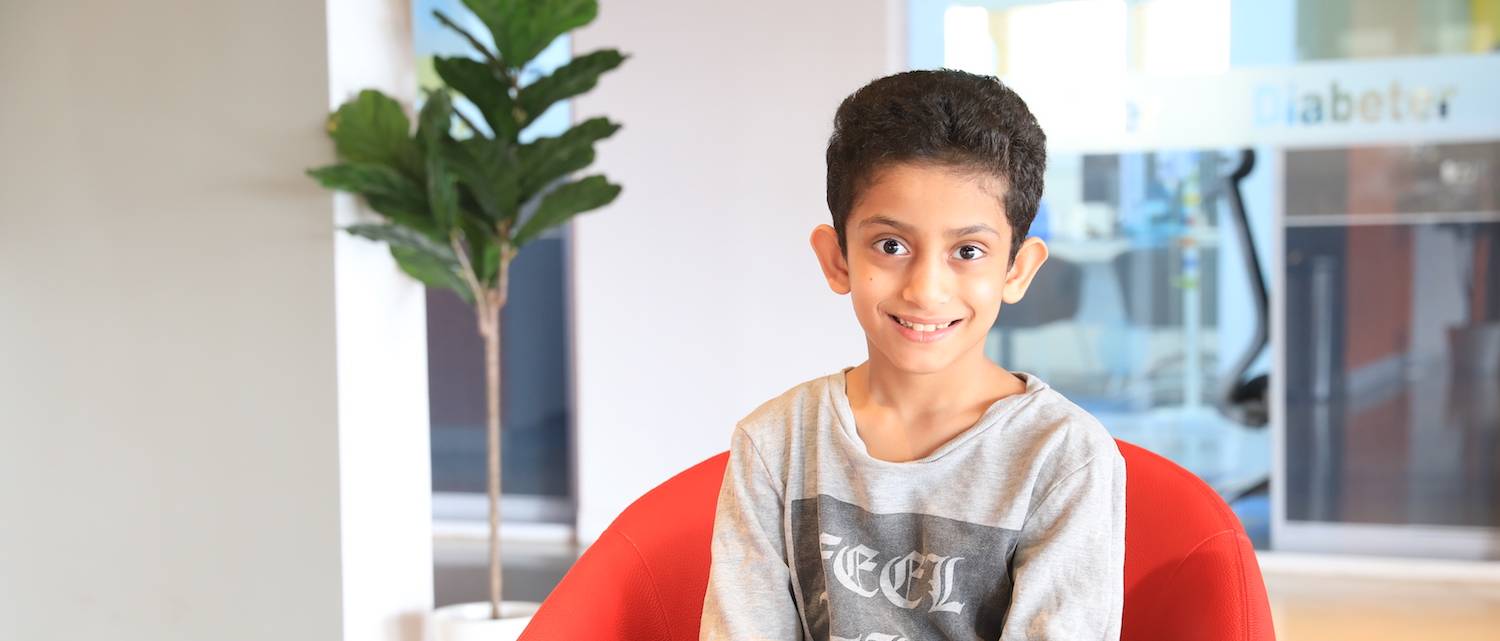Our approach | symptoms | injecting and measuring | Diabeter
Taking exceptional care of children and adults with diabetes
Type 1 diabetes is a lifelong condition and manifests some worrisome symptoms. As a type 1 diabetes patient, you can’t control levels of glucose in the blood as a result of a lack of insulin. At Diabeter, we offer advice and guidance to our patients and their families, along with treatments that are perfectly tailored to their individual lifestyle needs.
Insulin
The treatment of type 1 diabetes should start right after the diagnosis, because insulin is an indispensable hormone for the energy balance. Without enough insulin you will die. If the body does not produce insulin, it has to be administered. Starting with administering insulin makes the symptoms and signs of the illness disappear. Patients quickly feel better again. The insulin immediately stops your health from further deteriorating.
The doctor and the diabetes nurse start with making an insulin start schedule. In this they describe the amount of insulin and the type used. You need insulin in two ways. You need it always, 24 hours a day, in small doses. This we call the basic insulin. Besides this, you need extra insulin during mealtime and when you have high glucose levels. This we call the injected, mealtime or bolus insulin. This is administered with insulin that has a short lasting and strong effect and that is therefore called short working insulin. Basic insulin is thus constructed that is only has to be given – with an insulin pen – once a day and is therefore called long working insulin. So, short working insulin is injected at mealtime and for the correction of high levels.
Injecting and measuring
How much insulin you need to inject, depends from one part of the day to another and from one person to another. It also depends on someone’s bodily effort. To determine the amount that needs to be injected regular measuring of the glucose levels is essential. This is being done with a glucose meter or a pen with which you can prick into your finger to get a drop of blood. This drop goes onto a test strip in the meter. The doctor and the diabetes nurse tell you everything about pricking and injecting, so that you quickly learn how to do this yourself. They also advice you on how you can adjust your amount and type of insulin to your daily activities. The blood sugar levels you measure play an important role in this. At the start of the treatment you have daily contact about this, either by coming to one of our offices, at home or by the telephone.
Insulin is a protein, which means it cannot be administered in the form of a pill. The gastric acid would break it down. So, you have to inject insulin. This can be done in two ways: through an insulin pen or with an insulin pump. A pump requires special tactics that you need to learn. For this reason, we do not begin with this right after the diagnose. This technique is being discussed in the course of the first weeks of treatment.
The treatment at Diabeter is given by a team of people: medical specialist, diabetes nurse, dietician, psychologist et cetera. Depending on how long you already have diabetes and how you are doing you will see one or more of these team members when you visit us. Our planning is such that you see these people one after the other on the same (part of the) day.
eHealth
Apart from this, much care is given through eHealth: we can make an overview of the treatment with uploads from the glucose meters (and later) pumps plus the arrangements we made. This overview also includes a personal treatment plan: what to do with high or low levels or special circumstances like sports, being ill et cetera. We use the so-called ‘Ther@pemail’ for this.
Diabetes has a big influence on the patient (child or adult) and his family. Continuous care and attention are needed, most of the time by the patient himself (or his parents or caretakers). Independence is the goal of our treatment. With good treatment you feel better and you’ll have less acute and chronic complications. Therefore our mission is: a life without complications.
Diabetes: 24x7x365
Sometimes a life with diabetes can be quite hard. You will have moments when you or those in your family need care and support. Attention for the so-called psychosocial aspects of diabetes is very important. This is why at Diabeter we work with psychologists and we can add extra relief workers such as social workers, remote care and others.




